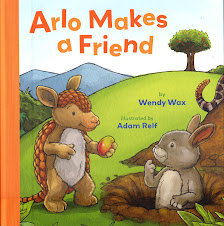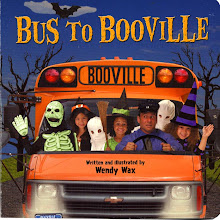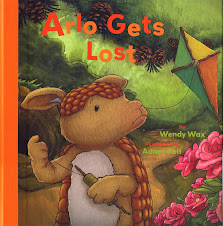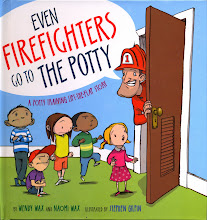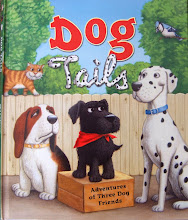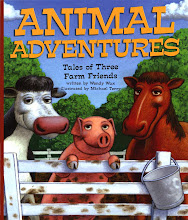I have a friend who has such a great idea for a children's book, she can't tell anyone (including me) her idea because she's afraid someone might steal it. She's not the only one. It seems that many people I meet, who have a children's book idea or manuscript locked away somewhere, never pursue getting it published because of this same fear. (Some are lawyers--so I guess it's their job to be fearful.)
Personally, I think it's a waste of energy to worry about idea-snatchers. There are trillions of ideas out there and what are the chances that someone will choose your idea, as unique as it is? I'm not saying you should post your best ideas on Facebook or Twitter or on a billboard in Times Square, but I do think you'll be better off channeling that worry-energy into something more creative.
Have I ever had an idea stolen? Yes--and not just an idea. One day I was at Barnes & Noble and saw that a book I had written--same title, same text, and illustrations that followed my art notes--had been published under the name of an illustrator I had hired to do a sample illustration for my book. How dare she?! I thought at the time, and I was pretty bummed out. I got a lawyer, scrounged around for correspondence, and didn't believe her story about how she had tried to track me down (not a difficult task) to ask my permission. Case over; her book is still out there.
But even still...I got over it and, in the long run, went on to write books I liked better than that one. The more I write, the more ideas I have, and the more ideas I have, the less time I have to write them all down. I believe that's true for most children's book writers. If I'm every stuck for ideas, I just go to New York City and look up at the thousands of windows everywhere, and remember that there is a world of stories that haven't yet been written--or at least not in the way I would do it.
If someone steals your idea, take it as a compliment and know you'll come up with another one...or two...or ten. Look up at the city windows or twinkling stars and remember that you live in a world of abundance. Old ideas are always being recycled; new ideas pop up when you least expect them.
If someone steals your idea, take it as a compliment and know you'll come up with another one...or two...or ten. Look up at the city windows or twinkling stars and remember that you live in a world of abundance. Old ideas are always being recycled; new ideas pop up when you least expect them.


